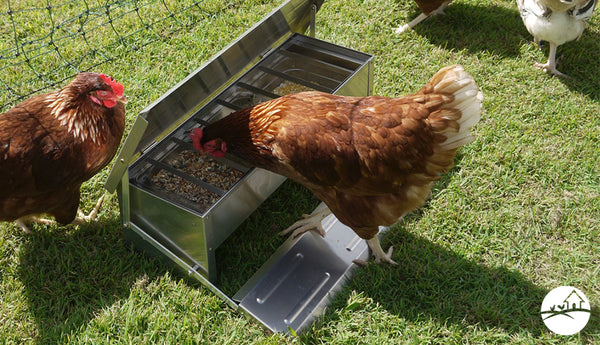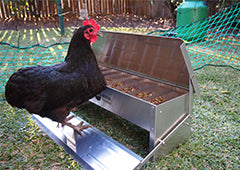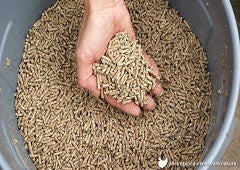One of the most frequent questions that many people have when they first consider keeping chickens is what kind of housing they need. While it is possible to keep baby chicks in a number of easily obtainable containers; as mentioned in the previous chapter, once they are a few weeks old, you will need something larger such as proper Chicken Coop or Chicken Shed for your feathered-pets.
Remember that much like humans, chickens have different nutritional needs at various stages of life. If you are raising chickens for egg production, you will need to provide your chicks with a quality starter feed with a minimum protein content of 22%. After your chicks have reached the age of six weeks you can then switch to a pullet grower feed with a protein percentage of between 14% and 16%. Once they make it up to 20 weeks, its time to transition them to a layer feed that has a protein content of between 15% and 18%.
You might also be surprised to find that you need to also protect your coop from access by rats and other rodents. This is because rodents are frequently attracted to the droppings and feed and can actually burrow beneath wire mesh if you do not take care to bury some of the fencing into the ground quite a bit.
Keeping chickens is a lot of responsibility. When it is feeding time, you will likely find it easier to use a poultry feeder to help in saving waste, rather than sprinkling it directly on the ground. If poultry feeders are used, the feeding system becomes much organized as less chicken feed goes into waste. Using chicken feeder saves a lot of trouble. Although, to keep your hens happy you can always sprinkle some mixed corn on the ground for your hens to scratch around in.
Remember that grit is also an essential ingredient in the diet of your chickens to aid in the digestion process. You can either mix grit directly with the chicken feed or you may sprinkle it on the ground.
While keeping chickens as pets, your flock will also need what is known as scratch. Scratch is comprised of a mix of different grains, including wheat, rye, oats, corn, etc. Remember, grit should really be reserved as a special treat for your chickens and should certainly not comprise the majority of their diet. Alone, grit does not provide all of the necessary nutrients your chickens will require. You will know soon enough if your chicks are getting too much scratch in their diet as the eggs they produce will have weak egg shells and break easily.
Provided that your chickens are being fed a complete form of feed they may not need any additional supplements such as oyster shells or supplemental calcium in their chicken feeders. With that said, you can offer your flock some as a special treat, just in case they are not getting all of the calcium they need from the feed. While raising chickens, always remember that a lack of calcium can result in eggs that are weak or irregularly shaped. In addition, a calcium deficiency can also cause your hens to experience a reduction in laying. Some people have even noted that their chickens have begun to eat their own eggs when they need more calcium in their diet.
Along with giving your hens access to the right chicken feed, you will also need to provide them access to some fresh greens. Your chickens will love vegetables as well as fresh pasture. Natural feed supplements are excellent for the health and well-being of your chickens, but can also help to reduce feed costs. In addition, many people find that the eggs produced by their chickens are much richer with yolk that is a deeper yellow when they provide their hens with access to green supplements. During warmer months it is easy enough to allow your chickens to roam free. During the summer months, you might consider supplementing the chicken feed with some alfalfa that has been soaked in fresh water overnight and feed to your hens in a poultry feeder.
Foods to Avoid
If your primary reason for raising chickens is eggs, there are some foods that you should not feed to your chickens. Although they are relatively few, these are foods that can result in a variety of problems, including a reduction in egg production and foul tasting eggs.
- Bones
- Citrus peels and fruits
- Raw potato skins
- Avocado pits and skins
- Large servings of meat
- Meat that has gone bad
- Onion
- Garlic
- Long-cut grass (if feeding alfalfa in the winter, always use second-cut)
- Chocolate



















